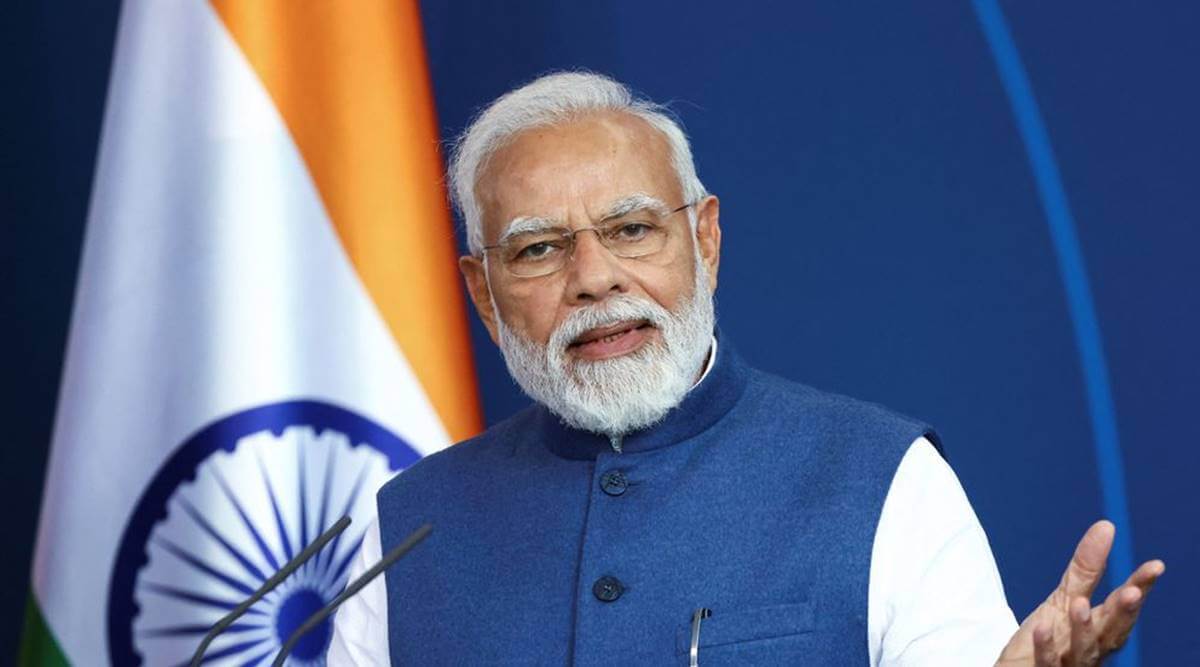Indonesian President Joko Widodo on Wednesday symbolically handed the baton for the G20 presidency over to Indian Prime Minister (PM) Narendra Modi, with India beginning its year-long presidency at the start of next month. The leaders of the group met in Bali this week to discuss global issues pertaining to the year’s theme of ‘Recover Together, Recover Stronger,’ with a particular focus on global health architecture, sustainable energy transition, and digital transformation.
Below is a summary of PM Modi’s two final addresses at the summit.
PM Modi’s address at the Group of 20 (G20) Digital Transformation Session
Modi described digital transformation as “the most remarkable change of our era” and opined that its “proper use” could “become a force multiplier in the decades-long global fight against poverty.”
Alluding to the emergence of “remote-working and paperless green offices” during the COVID-19 pandemic, the Indian PM remarked that digital solutions could also help countries fight climate change.
Addressed the @g20org session on Digital Transformation. Many tech innovations are among the biggest transformations of our era. Technology has emerged as a force multiplier in battling poverty. Digital solutions can show the way to solve global challenges like climate change. pic.twitter.com/yFLX9sUD3p
— Narendra Modi (@narendramodi) November 16, 2022
He added, however, that these benefits can only be realised when access to technology becomes “truly inclusive” and its use becomes “widespread.”
“Unfortunately, till now we have seen this powerful tool only from the criteria of simple business, keeping this power tied in the ledgers of profit and loss,” he said. To this end, he called on leaders of the G20 to make sure that such power not “be confined to a small part of the human race.”
Referring to India’s achievements in this regard, Modi said that making digital architecture “inclusive” could “bring about socio-economic transformation.”
He noted that under his leadership, India has developed digital public goods that have “in-built democratic principles,” as they prioritise open source, open APIs, and open standards.” He gave the examples of the Unified Payment Interface (UPI), which accounted for 40% of the world’s real-time payment transactions last year, and the open source CoWIN platform, which he said was “the biggest vaccination campaign in human history.” Indian citizens have also opened 460 million new bank accounts using their digital identities.
India will assume the G-20 Presidency for the coming year. Our agenda will be inclusive, ambitious, decisive and action-oriented. We will work to realise all aspects of our vision of ‘One Earth, One Family, One Future.’ pic.twitter.com/fRFFcDqpzO
— Narendra Modi (@narendramodi) November 16, 2022
Modi argued, however, that although digital access is being made public in India, there remains “a huge digital divide at the international level,” lamenting that digital payment systems are only operational in 50 countries.
Asserting that people in most developing countries do not have “any kind of digital identity,” the PM called on world leaders to pledge to bring digital transformation “in the life of every human being” over the next ten years.
The Indian leader concluded by saying that “Data for development” will be “an integral part” of India’s G20 presidency next year.
PM Modi’s Closing Remarks at the G-20 Summit
In his closing remarks at the concluding ceremony, Modi congratulated Indonesian President Jokowi for his “efficient leadership” as the president of the grouping “in these difficult times” and also hailed the group’s adoption of the Bali Declaration.
On the subject of India’s takeover of the group’s leadership next year, Modi noted that India’s takeover in the “holy island” of Bali marked “a very auspicious coincidence,” as the two “have an age-old relationship.”
He acknowledged that India is “taking charge” of the group “at a time when the world is simultaneously grappling with geopolitical tensions, economic slowdown, rising food and energy prices, and the long-term ill-effects of the pandemic.”
Spent two productive days at the @g20org Summit in Bali. Had fruitful deliberations with various world leaders and also highlighted India’s position on key subjects. I thank the people of Indonesia, the Indonesian Government and President @jokowi for their warm hospitality.
— Narendra Modi (@narendramodi) November 16, 2022
Keeping this in mind, he assured that India’s presidency “will be inclusive, ambitious, decisive, and action-oriented.”
“Over the next one year, we will strive to ensure that the G-20 acts as a global prime mover to envision new ideas and accelerate collective action,” Modi pledged.
Acknowledging that the “benefits of development are universal and all-inclusive,” he said that “global development is not possible without women’s participation.”
“We have to maintain priority on women-led development even in our G-20 agenda,” he affirmed.
Modi also underscored the importance of collaborative climate action, noting, “The sense of ownership over natural resources is giving rise to conflict today, and has become the main cause of the plight of the environment.”
Taking all of this into consideration, the PM proclaimed that assuming the G20 presidency is “a proud occasion for every Indian.”
“Together, we will make the G-20, a catalyst for global change,” he declared.

